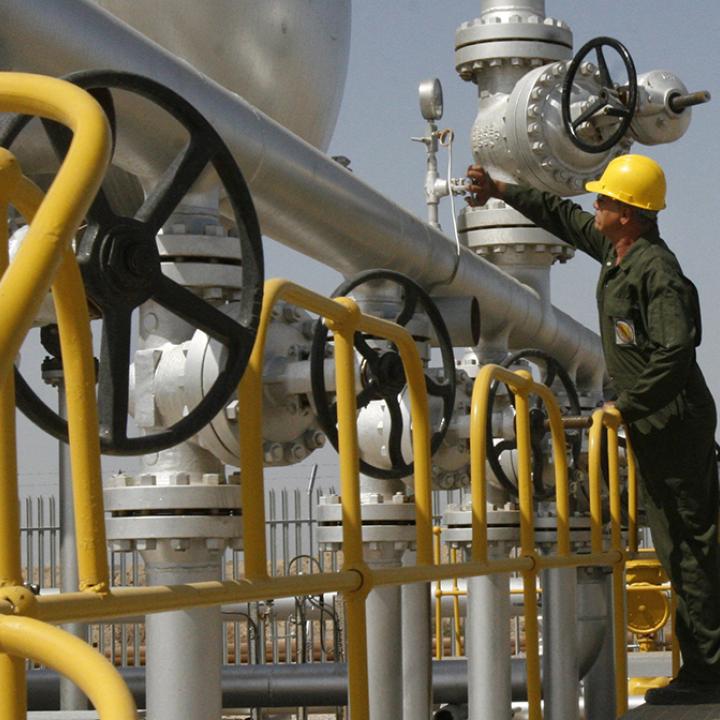

Predictably, last week's "expert level" talks between Iran and world powers were no more fruitful than previous rounds, leaving little optimism for a negotiated resolution to the nuclear crisis anytime soon. Western policymakers, buoyed by their success in reducing Iran's oil exports, appear content to give sanctions more time to work, in the hope that once Tehran feels their full effect negotiators will return to the table, more ready to compromise.
The evidence, however, suggests that sanctions' effect on oil exports will not increase over time.
First, Western policymakers tend to focus more on what Iran has lost than what it has retained or gained. That's fine for a political debate but bad for making sensible policy. It is true that Iran's oil exports have declined from 2.5 million barrels per day to 1.5 million. But that reduced level is hardly meager: Iran is still one of the world's top oil exporters, from which it earns billions in hard currency. And nothing suggests that the drop in earnings has stunted Iran's nuclear program, which is the target of Western ire. Iran is enriching uranium faster and to higher levels than ever before. If any party appears to feel a need to compromise, it is the "P5 + 1" (the United States, Britain, China, France, Russia and Germany). They have dropped demands that Iran fully halt enrichment in favor of requesting that it merely cap enrichment at a low level.
Furthermore, the historical evidence does not suggest that sanctions' effect on regimes grows over time. Numerous examples -- including Moammar Gaddafi's Libya, Saddam Hussein's Iraq and present-day North Korea -- demonstrate that such regimes are resilient and can hold out for a long time in the face of sanctions -- and can even adapt to or circumvent them. There is also good reason to believe that states that reluctantly complied with oil sanctions will not make further reductions and may even increase oil imports from Iran as economic activity -- and thus oil demand -- recovers. Recent data suggest that Chinese oil purchases from Iran have increased despite a dropoff in the first quarter of this year.
So while policymakers may hope that oil sanctions will continue to pay dividends, it is likely that the full effect has already taken hold. If the United States and its allies wait to see which is the case, the result could be a prolonged period of inaction similar to the one that followed the June 2010 passage of U.N. Security Council Resolution 1929 and lasted until Congress and the European Union passed oil sanctions in late 2011. Like any good pugilist, Washington should follow the heavy blow of oil sanctions with further unrelenting pressure.
The most recent sanctions have been so significant because they seized on Iranian dependence on oil-export revenue -- one of the regime's key vulnerabilities. To meaningfully increase the pressure, policymakers should identify and exploit the regime's other vulnerabilities.
One is Iran's limited international support. The regime has few true allies. The most important of them is Syria, and bolder international efforts to oust the regime of Bashar al-Assad would considerably weaken Tehran's position, as would greater emphasis on interdicting arms and funding flowing to and from Iran.
Another key Iranian vulnerability is the regime's growing internal isolation. The West should not be shy about cultivating Iranians outside the narrow circle around Supreme Leader Ali Khamenei or providing support to dissidents in Iran.
Finally, Washington should bolster the credibility of its military threat. Recent steps to strengthen its force posture in the Persian Gulf are a good start. They should be accompanied by more serious statements about U.S. willingness to employ force and an end to statements exaggerating the downsides of military action. This is likely to garner attention in both Tehran and Beijing. If the alternative is military conflict in the Persian Gulf, China may see further reductions in its Iranian oil imports -- which would be the most significant way to strengthen the current sanctions -- as prudent.
Western policymakers' assertions that there is time for sanctions to work are a bit like a marathon runner saying he has plenty of time to finish the race. There may be time, but the latest round of talks' failure to make progress despite mounting pressure on Iran suggests we also have a long way to go.
Michael Singh is managing director of The Washington Institute.
Washington Post


